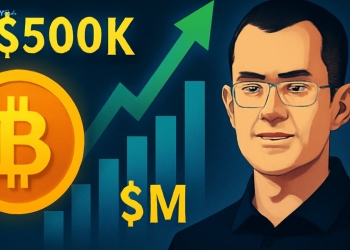Minnesota’s Tim Walz and Keith Ellison face scrutiny over donations from FTX executives before its collapse. As Walz joins the Democratic presidential ticket, his crypto stance and transparency are in focus.
Unexpected twists and turns are the norm in the crypto world. But when these twists intersect with political campaigns, they can create ripples that extend far beyond the digital realm. Such is the case with Minnesota Governor Tim Walz and Minnesota Attorney General Keith Ellison, who found themselves entwined in the aftermath of the FTX collapse.
A Web of Donations
In the autumn of 2022, mere days before the dramatic downfall of the crypto exchange FTX, two Minnesota policymakers received donations that would later come under intense scrutiny. Governor Tim Walz, now the running mate of Kamala Harris on the Democratic presidential ticket, received $4,000 from Nishad Singh, the former engineering director of FTX. This contribution was recorded by the Minnesota Campaign Finance Board as part of Walz’s re-election funds in October 2022.

Just weeks later, in November, former FTX CEO Sam Bankman-Fried, also known as SBF, contributed $2,500 to the campaign of Minnesota Attorney General Keith Ellison. These donations might have gone unnoticed had FTX not filed for bankruptcy shortly after, throwing the entire crypto world into chaos and dragging political donations into the spotlight.
Fallout from FTX Collapse
The collapse of FTX and its associated firm, Alameda Research, sent shockwaves through the financial and political arenas. Reports soon emerged that Walz had returned Singh’s donation in light of the controversy. Bankman-Fried’s extensive contributions to various political campaigns became a focal point of investigations, as debtors sought to recover funds to compensate FTX users.
Nishad Singh embroiled in the legal turmoil, pleaded guilty to fraud and money laundering in 2023. During SBF’s trial, Singh testified, revealing that the former CEO would “unilaterally spend Alameda’s money.” Singh’s testimony provided a glimpse into the internal workings of the troubled crypto empire. He is set to be sentenced in October, while Bankman-Fried is already serving a 25-year sentence, with his legal team filing an appeal.
Governor Tim Walz’s Stance on Crypto
As Governor Tim Walz steps onto the national stage alongside Vice President Harris, his stance on digital assets and blockchain technology remains largely uncharted territory. Many crypto enthusiasts speculate that Walz might lean towards stricter regulations, given his proactive approach to other issues such as climate change. However, as of now, his campaign has not articulated a clear position on crypto-related matters.

An August report from Axios sheds light on a potential reason for Tim Walz’s impartiality. The Minnesota governor reportedly owns no stocks, mutual funds, bonds, private equities, real estate, or cryptocurrency. This absence of financial entanglements might position him uniquely to address policy issues without conflicts of interest, a contrast to many members of Congress who hold diverse financial portfolios.
The STOCK Act and Transparency
Governor Walz is no stranger to advocating for transparency in financial dealings. In 2011, while serving in the US House of Representatives, he sponsored the Stop Trading on Congressional Knowledge (STOCK) Act. This legislation, signed into law by President Barack Obama in 2012, requires lawmakers to report the purchase, sale, or exchange of many assets during their tenure in Congress. Despite its intention to promote transparency, critics argue that the STOCK Act imposes minimal financial and legal consequences for non-compliance.
The enforcement of the STOCK Act has allowed the public to glimpse into the crypto holdings of numerous senators and representatives over the past 12 years. However, some lawmakers believe the Act doesn’t go far enough, advocating for a complete ban on stock trading by members of Congress while in office to avoid conflicts of interest.
Conclusion
The intersection of cryptocurrency and politics is fraught with complexities and controversies. The donations to Governor Tim Walz and Attorney General Ellison, occurring just before the collapse of FTX, underscore the intricate connections between financial contributions and political campaigns. As Tim Walz joins the Democratic presidential ticket, his approach to digital assets and blockchain technology remains a subject of keen interest and speculation.
With his history of advocating for financial transparency and his apparent lack of personal financial entanglements, Tim Walz might offer a fresh perspective on regulating the crypto industry. As the campaign progresses, it will be crucial to observe how he navigates these uncharted waters, balancing the demands for innovation with the necessity of regulation. The story of FTX and its political donations serves as a reminder of the far-reaching implications of financial scandals and the importance of integrity in both financial and political spheres.































































































![BitTorrent [New]](https://s2.coinmarketcap.com/static/img/coins/64x64/16086.png)













